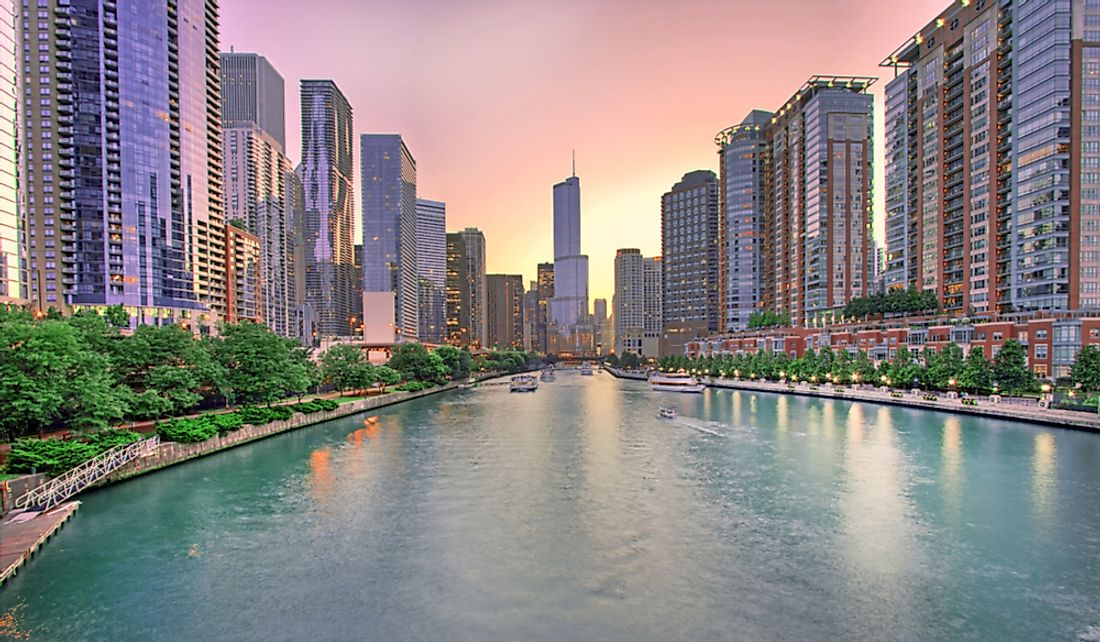How Did Chicago Get Its Name?

Chicago is the third largest city in the United States with a population of approximately 2.75 million. The Chicago metropolitan area is the third largest in the world by area. The city was incorporated in 1837, but rapid growth occurred in the mid-19th century. There are several theories as to how the city gained its name, although most agree on Native American roots.
Early Settlers of Chicago
The native settlers of Chicago were the Algonquian people including the Miami and Mascouten Indians. Nicholas Perrot was the first European to set foot in the region in 1671. French explorers Jacques Marquette and Louis Jolliet followed soon after. Jean Batiste Point du Sable built the first permanent settlement in the 1780s and became the first non-native to settle in the area. After the Northwest Indian War, some of the tribes ceded to the United States and in the 1830s Chicago had developed to a municipality of about 100 people. The earliest records of the city being referred to as “Chicago” date back the 1830s.
The Origin of the Name Chicago
It is not surprising that the name “Chicago” is derived from a Native American word given the city's root. There are several theories on the specific words that the name was derived from because the Native Americans had several words that were pronounced similar to Chicago.
A popular theory states that the city acquired its name after a chief named Shecaugo drowned in the river that later became the Chicago River and the town earned the title from the river. A different analogy states that the name is derived from “Shecaugo” which translates to “playful waters” in reference to the waters of the Chicago River.
The generally accepted theory states that the name was derived from a Miami-Illinois word “shikaakwa” or the “smelly onion.” The Miami-Illinois Indians named natural landmarks after the plants found nearby. The system was prevalent in the Algonquin languages because it reminded the locals what plants grow where and therefore made easy reference when gathering food. The area around the mouth of the Chicago River was known as “Shikaakwa” by the local population because smelly onions grew around the watershed. French explorers “Frenchified” the word and turned it into “Shecaugo” for their reference. In 1687 explorer, Henri Joutel made a journal entry stating that he had arrived at a place known as “Shecaugo” where smelly garlic grew in the woods.
Chicago Is Nicknamed The "Windy City"
Chicago's nickname is the “Windy City.” It probably acquired the name because of its weather. Cold breezes blow at high speeds from Lake Michigan and sweep through the streets of the city, giving it its nickname.











